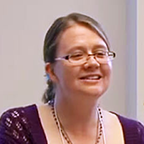
As you can see, just the title of this book speaks volumes! I came across it recently when reading a published interview in Emergence Magazine with Zoë Schlanger, author of
The Light Eaters, a related work of a different sort that I touted this past summer. Schlanger recalls how much the Geniusz book influenced her to research and eventually write about her discovery of plants as conscious, communicative beings.
Of course I was intrigued and ordered a copy of this little known (at least to me) read immediately!
While Schlanger's book is written from the perspective of a climate journalist with a scientific bent, the focus of Plants Have So Much To Give Us, All We Have To Do Is Ask is on the native botanical wisdom of Mary Siislip Geniusz.

The author's daughter and the book's editor, Wendy Makoons Geniusz describes her mother as an Oshkaabewis (ceremonial apprentice), and teaching assistant to Keewaydinoquay Peschel, an Anishinaabe medicine woman from Michigan. Wendy tells us that Mary was born in Manitoba of Cree and Métis decent, and lived most of her adult life in Wisconsin. Here she trained and worked with the Ojibwe, a tribe culturally and linguistically related to her ancestral Cree people.
Along with 30 years of intense, local plant study, Mary received an extensive education from the University of Wisconsin and assisted her mentor in teaching undergraduate classes and workshops in Anishinaabe ethnobotany.
The book covers a wide range of edible and medicinal plants. It's written with a mix of story telling, practical information and related experiences designed to enlighten both native and non-native plant medicine healers and teachers. Traditional stories are presented to readers as they were told to the author by her mentor and other Native American medicine people. They are easy to read, and include such delightful examples as "The South Wind and the Maiden of the Golden Hair," and "Why Some Trees Keep Their Leaves While Others Do Not."
In an effort to honor her mother's work and respect their cultural heritage, editor Wendy Makoons Geniusz is careful to keep the material in the context of the Anishinaabe traditions and practices.
Wendy Makoons Geniusz
"The knowledge that has been recorded in these pages" she writes, "has come to us through countless generations of the Gete-anishinaabeg, the Old Ones, our ancestors, and the Aadizookaanag, the spirits who hold our teachings, including those of the plants, trees, and animals who brought this knowledge to our ancestors."
Anishinaabe names of the plants along with their more generic and Latin names are included. The author refers to these allies in the way of the Ojibwe, as family members, using such terms as "My Grandfather Birch: Nimishoomis-wiigwaas" and "My Elder Sister: Nimisenh" (Balsam Fir).
As you can't help but notice, the unique tribal language characterized by extensive use of double vowels, can be challenging to pronounce or sound out mentally. English dictionaries and spell check won't give any assistance, so fortunately, the editor provides a glossary of Ojibwe words to help the reader feel more comfortably immersed in the culture.
The book also includes quite a varied selection of medicinal and culinary recipes derived from the native species covered in the text. There are clear instructions on making plant medicines like White Pine-Honey decoction, Wildcat Liniment, and Tamarack & Willow tincture as well as foods to prepare such as Dandelion Flower Biscuits and Cattail Pollen-Pancakes.

This book is of special interest to me because one of my spirit guides identified herself a while back as a medicine woman of the Ojibwe people. I'm not well versed in North American Indian tribes, so I had to research this to learn that the Ojibwe were native to the Great Lakes Region and parts of Canada.
After discovering and perusing through Plants Have So Much To Give Us, All We Have To Do Is Ask, it occurred to me that finding it was not a coincidence, and so I offer my own "Miigwech" (thanks) to all those seen and unseen beings who contributed to this book and brought it to my attention!
As always, thanks for letting me share my thoughts and journey with you. I welcome your input, so if you want to submit a comment, scroll down to the bottom of this post. If you are interested in booking a personal session, you can do this here:
You can also contact me via email at: my.plant.allies@gmail.com
For now, here's wishing you wellness, wisdom and bloomin' vibes!
"Spring Tea Poem" offered by the author's mentor (Keewaydinoquay Peschel) as it appears in the opening pages of this book:
To you I would serve cedar tea
mixed with a touch of April
distilled from shy green stems,
the frosted perfume of spring
rain along with a dollop
of honey and ice



Comments